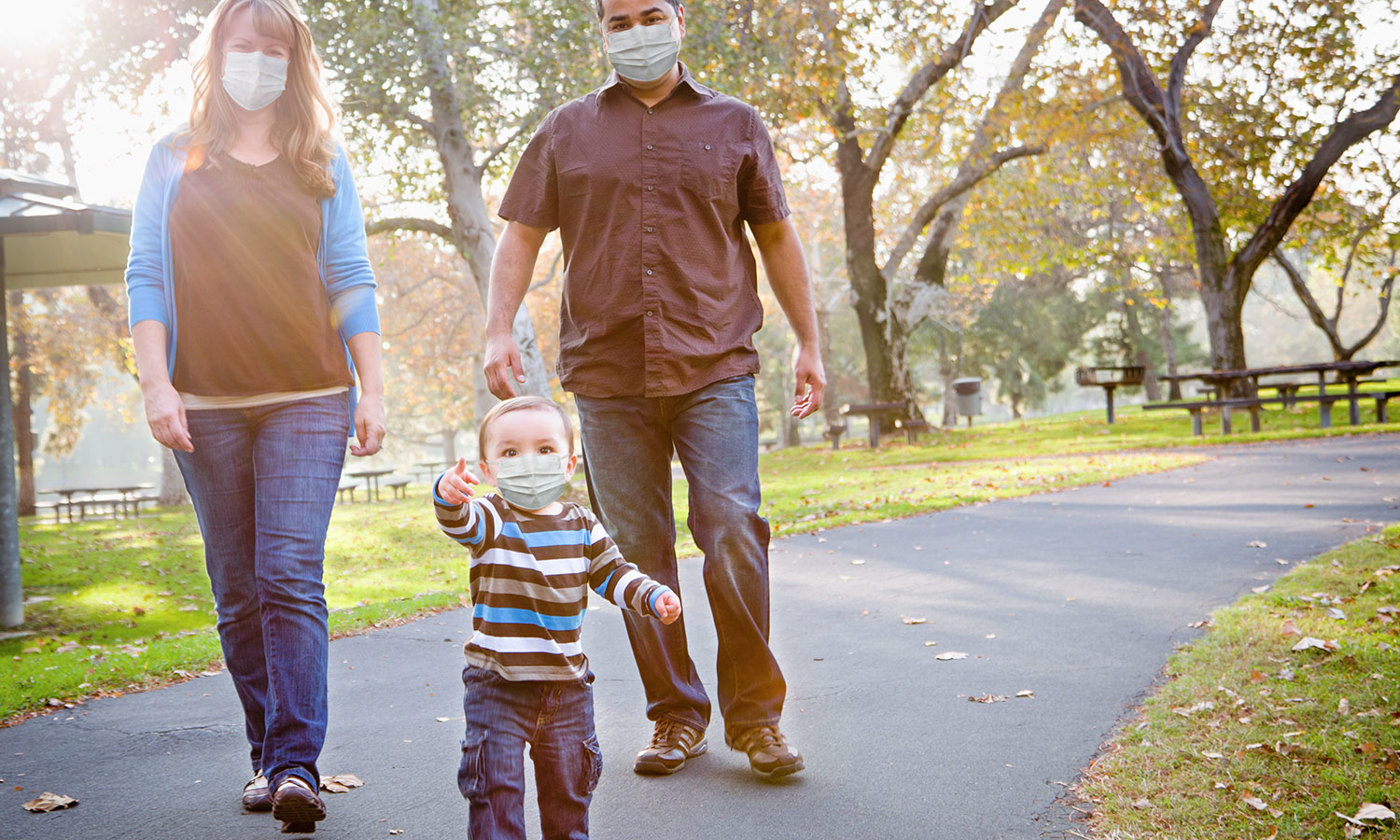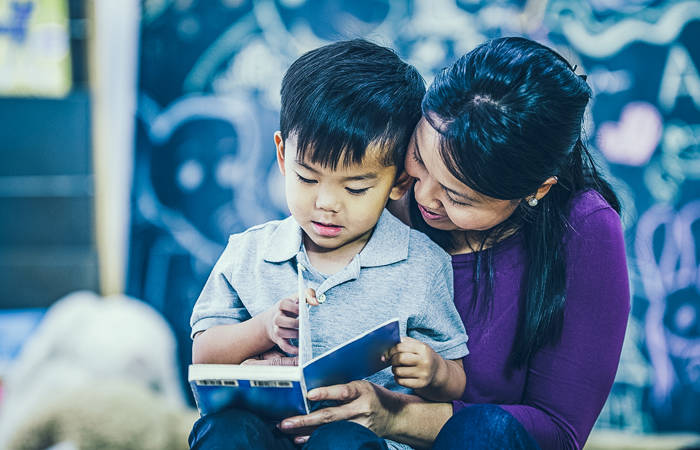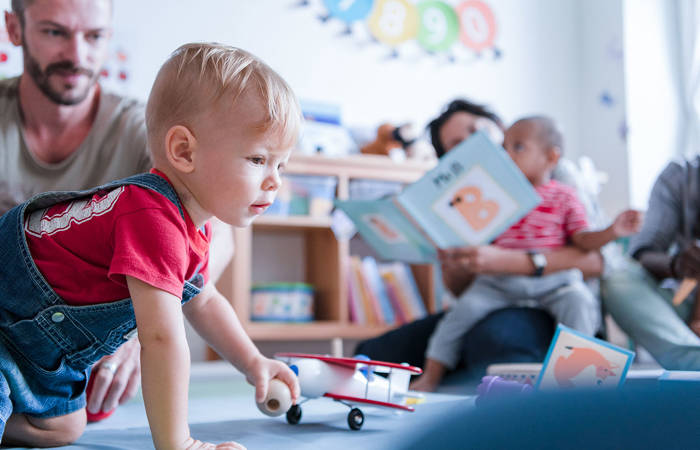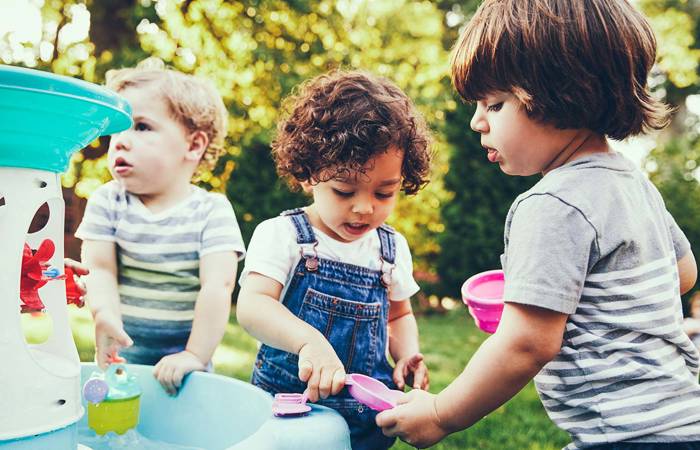Like what you see?
Sign up to receive more free parenting advice.
Thank you for subscribing to our newsletter!
Child Development

Credit: iStock.com/Feverpitched
Speaker, author and academic Dr Michael Nagel looks at how isolation, social distancing and masks may hinder a child’s social development and mental health.
The other day I was walking into one of my local shops and as I routinely grabbed my mask from my pocket to be COVID compliant, I noticed a mother and young child exiting the same shop. Aged between 3 and 4, she looked up and saw me, mask free. I was surprised at how her eyes widened and the excited reaction she gave when I smiled, and then it hit me… I was the only one around at the time whose face was fully visible. This young girl kept staring at me with what seemed to be a mixture of joy and curiosity. As someone who has spent most of his life studying child development I was reminded how important it is for children to see, and be with, other people.
These are strange and challenging times for us and increasingly so for children of all ages as we continue to grapple with a pandemic and its associated lockdowns and health measures.
Children across Australia are dealing with a very unnatural and potentially harmful situation depending on how cooped up they have been or continue to be. This might lead many parents to wonder how health restrictions could impact their child’s development, and in particular, how isolation, social distancing and masks may hinder social development and mental health.
The impact of masks on child development
Human faces convey a great deal of information and are one of the most important aspects of communication and development for children. Faces are so special that the temporal lobe of the brain houses a region solely responsible for facial recognition known as the fusiform face area.
For children, seeing a person’s face offers a foundation for learning to read emotions and navigate social cues. So powerful is the need for children to see faces that developmental psychologist Professor Edward Tronick demonstrated the stress and despair an infant can experience when a parent offers an emotionless ‘poker’ face, or still face, for only a few minutes. This is why mask wearing, if not mediated in some way, can be a problem for children.
Fortunately, the face is not the only place we get important information and children can still interact with family and perhaps close friends without masks, at home or with others online.
We can buffer mask wearing by providing as many opportunities as possible for your child to see the faces of others whenever possible and remind them that masks are temporary.
Uncertainty and unpredictability affecting children
Challenges related to the mental health of children have grown since the onset of the pandemic. These are not restricted to Australia and emerging studies and reports far and wide share similar concerns with some reports suggesting that children may even be developing forms of post-traumatic stress disorder.
At the heart of such concerns are two issues. The first is continued uncertainty and the second is related to the challenges associated with social distancing and isolating children from one another and the world via lockdowns. Some of this is beyond the control of parents, but there are things parents can do to help their children.
Uncertainty and unpredictability are key contributors to anxiety and stress related disorders. The human brain is designed to survive and learn, in that order, and survival requires degrees of certainty in life.
For children, whose brains and minds are still developing, this is even more critical given their limited ability to think abstractly and consider the future. When their daily routines are disrupted and when disruptions occur for their parents in terms of livelihood and/or isolation and/or school closures and/or illness, children can quickly become despondent, worried and anxious.
The most important thing is that parents need, to the best of their ability, to remain calm and positive. Yes, things may be difficult but children need to know that things will be okay and offered as much routine and predictability as possible.
It is equally important to remember that socialisation is a vital component of a child’s development. It is how children learn the skills that shape their everyday interactions with others.
Currently it is difficult to know how the pandemic might fully impact on children as we don’t have any precedent or data sets from previous periods that compare to our ‘new’ normal. However, children are likely to accept the current situation without fully comprehending the gravity of the impact of social distancing and isolation.
For children, seeing a person’s face offers a foundation for learning to read emotions and navigate social cues. So powerful is the need for children to see faces that developmental psychologist Professor Edward Tronick demonstrated the stress and despair an infant can experience when a parent offers an emotionless ‘poker’ face, or still face, for only a few minutes.Dr Michael Nagel
Stay up to date with the latest news and articles from First Five Years
Thank you for subscribing to our newsletter!
How parents can support children in lockdown
Parents should make sure they are communicating with their children without instilling fear, while simultaneously validating their feelings. Recognise any sadness or frustration, but also provide encouragement that things are only temporary and offer connection with others in any way possible.
Social distancing and lockdowns do not mean complete social isolation. Using technology to make contact with friends, extended family members, teachers, faith leaders and others provides some level of interaction and conversation. Of course there must be guidelines and rules around online activity, but this can also help by creating routines.
Parents can use time at home to reconnect and redefine relationships in the home. Having family meals and involving children in the planning and cooking is a start. Alternatively, physical activities such as taking walks or doing interactive activities such as board games and puzzles provide frameworks for engaging the entire family while keeping children connected and feeling supported.
As much as possible, be mindful of frustration levels, both yours and your children’s. An increase in frustration is to be expected in the current climate and as such it is important to be flexible with expectations and negative emotions. Sometimes children and adults alike just need time outs and alone time. These are also opportunities!
Mindful activities such as quiet walks, meditation or yoga can help to regulate negative emotions and thoughts. And for parents, if you need to vent, as we all do from time to time, do so in a private place or on the phone with supportive adults where your children aren’t going to hear you.
Also be caring to yourself and acknowledge that you are doing the best you can at this difficult time. Before you can take care of the social and emotional health of your children, you must ensure yours is positively intact.
Make no mistake, lockdowns and isolation are difficult for everyone, but for the developing minds of children they can be even more worrisome. So turn off the news, look to the future, embrace your children and find a way to be together in a positive way where smiling, laughter and love can buffer the impact of masks and isolation.

Dr Michael Nagel
Associate Professor, School of Education, University of the Sunshine Coast
See more





